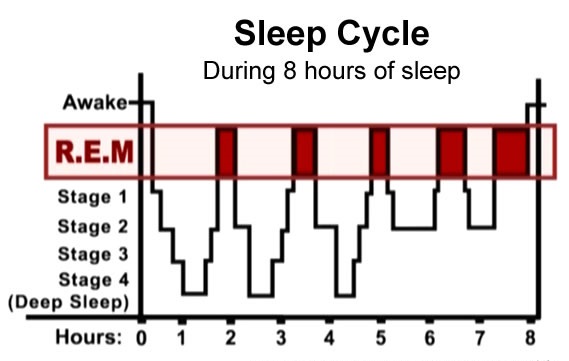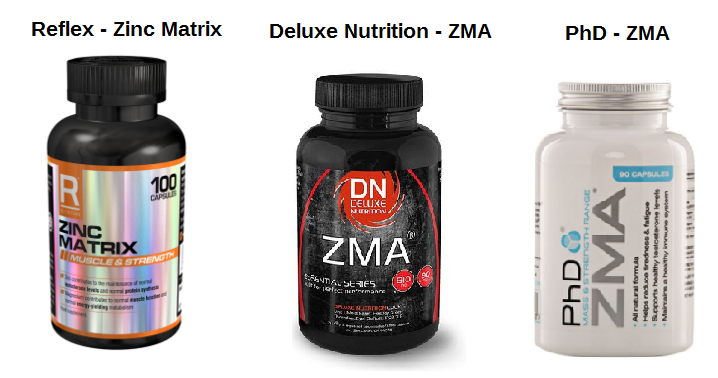
Want to reduce stress? A great place to start is by reading The Cortisol Connection by Shawn Talbot. I’ve also provided notes on his book which can be found here.
Here’s a breakdown of the top causes of stress, as well as the common symptoms. U.S. data is likely quite comparable to the U.K. and some key points are listed below.

Of those listed, this website can help you improve your Health, Nutrition and Sleep Quality. I hope this will have a positive impact on the other factors in your life.
So here are my top tips for beating stress:
1. Don’t Hit Snooze
Your body works in 90 minute sleep “cycles” where you gradually move into deeper sleep before returning to a lighter sleep. If you cut this cycle short at the wrong time, you will not feel as fresh as timing it right.
Ever woken up at 4am feeling really alert? That was likely at the end of a cycle, and in lighter sleep you’re more easily woken.

When you try and get an extra 5, 10 or 20 minute snooze, you aren’t completing enough of a cycle and you may wake up feeling worse than you were 15 minutes ago! Instead, put your alarm just out of reach and commit to getting up on that first alarm.
2.Take a 4 minute Cold Shower
Check out this article for more information. While it may sound deeply unpleasant, a cold shower every day has numerous benefits.
Some of the benefits you can expect:
- Increased alertness
- Improved immunity and circulation
- Weight loss
- Muscle recovery
- Reduced stress
3. Eat A Healthy Breakfast
If you are skipping breakfast or only having coffee, consider adding in a small meal before you head out the door. Greek yoghurt with berries, a protein shake or an omelette are great options that you can make in under 10 minutes. You dehydrate overnight, so make sure you have a glass of water before you leave the house.

4. Cut the Morning Caffeine!
“Today’s sedentary lifestyle coupled with caffeine and coffee consumption creates chronic levels of stress hormones in the body”.
Your body releases its own chemicals to wake you up in the morning. By having coffee in this state you block your natural process of waking up. Wait until 10am for your first cup, and remember that any caffeine after 4pm can interfere with your sleep. If you can’t live without that first coffee, make it a decaf. You can find a summary of the extensive research of coffee on stress here.
5. Read a Book (or try Box Breathing)
If you are on public transport, you can use that time wisely by reading one of my recommended books (take notes if you can!). Alternatively, practice box breathing to calm the nerves and reduce stress. Get at least 4-5 minutes in each journey and you should feel better.
6. Exercise
Any kind of physical activity, be it walking or hitting the gym, reduces stress. That’s because your body releases mood-boosting chemicals called endorphins. Beyond that, exercise also protects against heart disease by lowering your blood pressure, strengthening your heart muscle, and helping you maintain a healthy weight.

7. Improve Your Posture
Looking after your body is a simple way to improve your daily quality of life. Bad posture contributes to stress and stress contributes to bad posture. If you are dealing with daily aches and pains, spend 6-8 hours of the day sitting, try these stretches every day before bed and reap the benefits. You can also check out an excellent book called The Permanent Pain Cure for a wide range of stretches intended to cure back, hip and other chronic pains.
8. Take Vitamin D3
Your body can convert energy from direct sunlight into vitamin D through 20-30 minutes of sun exposure per day. Unfortunately sometimes our jobs (or the weather) make that 20 minutes hard to come by, and an estimated 10 million people in the UK are deficient in Vitamin D. Supplementing correctly with a Vitamin D3/K2 blend in the evening can reduce fatigue, weight gain, restless sleep and high blood pressure if you are deficient. Read a separate article on Vitamin D here.
9. Avoid Blue Light
Laptops, iPads, Televisions and Mobile Phone screens emit ‘blue light’, which suppresses melatonin (sleep hormone) reducing the quality of your sleep.
Experts recommend avoiding screens in the hour before going to bed. This hour can be spent reading a book, doing some gentle yoga or planning your week (with a pen and paper!). Some of the latest mobile phones have ‘night time’ mode which cuts out blue light.
If your job involves late night screen time you can download f.lux software, which removes blue light from your device at night. Learn more about blue light here.

10. Take Zinc & Magnesium Supplements
If you are one of the millions of people in the UK deficient in Zinc and Magnesium, then you will feel more rested from the same duration of sleep if you take these pills. A supplement that includes Zinc, Magnesium and Vitamin B6, known as “ZMA”, is an excellent way to improve your quality of sleep. Read more about ZMA here.

Try these 10 tips and improve your stress levels for good!


